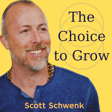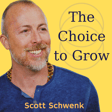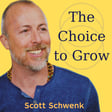
The Soul Has a Schedule with Kimberley Lafferty
Mystic, leadership development sherpa and tantric Buddhist lama in the lineage of the Dalai Lama, Kimberley Lafferty joins Scott Schwenk for a conversation that spans the hunger to grow, awakening, death, devotion, embodiment and feminine leadership, and what it means to surrender to the soul’s timing. From her experiences as a householder teacher and practioner (rather than a monk) to her reflections on divine love and karma, Kimberley shares stories that are as raw as they are revelatory.
🎧 Tune in for a poetic journey through following a deep calling, faith, and the mystery of being
Kimberley Lafferty - Buddhist Lama, Developmentalist, Yogini
Kimberley Theresa Lafferty is a seasoned teacher-practitioner specializing in”developmental spirituality,” an integration of ego development psychology and Indo-Tibetan Vajrayana. She leads multi-year, private spiritual education cohorts with the Confluence Experience. Kimberley has completed more than three years of non consecutive solitary retreat in the lineage of the Dalai Lama, and was one of the first female bodied westerners to receive the title of “Lama” from her teacher. Kimberley holds advanced degrees in Human Development and co-leads, with Terri O’Fallon, the penultimate Minds I year-long developmental course of Stages International. She is an active Board member for the Association for Spiritual Integrity, and is a wife and mother to a teen son, which deeply impacts her worldview and practice.
https://confluenceexperience.com/contact-us/
Scott Schwenk - Master Coach, Spiritual Teacher, Culture Architect
Scott’s teachings, courses and private mentoring guide leaders, seekers and creatives to explore their deepest selves in service of thriving on all levels of being, both individually and relationally.
Host and creator of the podcast The Choice To Grow, Scott is known for his hugely popular courses and workshops with OneCommune.com, Younity.com, Wanderlust Festivals, and Unplug Meditation, Scott has been catalyzing the inner evolution of others for decades: helping them to grow, transform obstacles into opportunities, and find Love within.
Scott spent several years living and studying in a meditation monastery which introduced him to the core body of Tantric meditation traditions which continue to flow through each of his teachings. Scott continues to study and teach from two key Tantric lineage streams.
Apprenticeships in leadership development, meditation and philosophy training, shadow work/shadow resolution and spiritual awakening are all part of Scott’s development into the thought-leader that he is today. He continues to refine his offerings studying and practicing with key innovators at the leading edges of human development.
Scott’s teachings support the entire person to not only progressively recognize, stabilize and embody our inextricable oneness with the source of creation (Waking Up), but also to resolve the wounds of the past (Cleaning Up), continually expand our capacities for wider and more inclusive perspectives on any moment (Growing Up) and creatively and joyfully participate and collaborate with all of life as a loving thriving human being (Showing Up).
You can receive a free guided meditation and explore Scott’s courses, workshops, retreats, training and master coaching at https://scottschwenk.com and can find him on Instagram @thescottschwenk.


